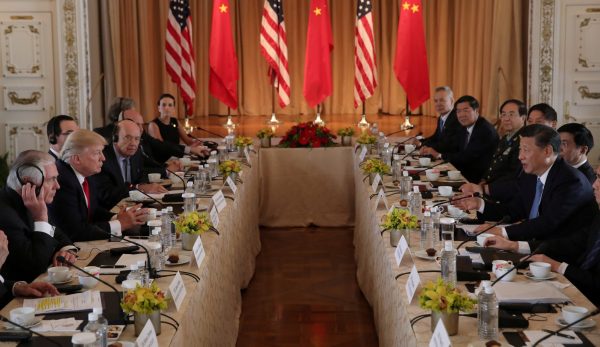The effort put into this deal to broaden US–China cooperation illustrates the extent to which the management of the bilateral relations has changed under Trump and Xi leadership.
The deal covers agricultural trade, financial services, investment and energy cooperation. It opens up markets for US beef and Liquefied Natural Gas (LNG) exports and certain financial services and investment into China. It is obvious that each part of the deal is designed to target an area in which the United States already has a competitive advantage or an area that can take advantage of due to China’s rising consumer-driven demand. Most of the United State’s increased access to China will be made effective by 16 July, 100 days after the Trump–Xi meeting.
China is the world’s second largest consumer of beef and the third largest consumer of LNG and these markets will continue to grow in coming years along with China’s wealth, middle-income population and clean energy use. As the United States is currently only a small player in these Chinese markets, it sees enormous benefit from better access. US suppliers’ entry to China will change the whole structure of the Asian gas market. China will also benefit from having a new supplier that helps diversify its supply sources as well as lower prices, which tend to be higher in Asia than in the United States.
Under the deal, China will also allow foreign institutions to provide credit rating services. This will add further discipline to some Chinese markets and improve the credibility of China’s credit rating — credibility that domestic rating services are unable to provide. That would help Chinese and foreign businesses make sounder decisions and attract foreign capital. It could also constrain firms with poor credit ratings from leveraging up.
The financial deal allows two US-owned banks — JPMorgan Chase and Citigroup — to obtain an interbank debt underwriting license and settlement business. The United States will then treat Chinese banks the same way it treats other foreign banks wanting to open up businesses in the United States. China’s central bank and the US Commodity Futures Trading Commission will then work towards an agreement on the oversight of cross-border settlements and transactions.
The deal included a US decision to send the Trump administration’s top Asia-policy advisor, Matt Pottinger, to China’s Belt and Road Forum (BRF) from 14–15 May. This decision was a surprise given that the United States had formerly been disengaged in the Belt and Road Initiative process. The United States shift reflects its eagerness to get US companies involved in the BRI projects, which Pottinger said is being coordinated by a special working group within the US Embassy in Beijing.
How should the trade deal be assessed? On the surface, it may not mean much. Ian Driscoll at the American Chamber of Commerce in Shanghai sums it up as ‘a good beginning’ but ‘not a breakthrough’, in light of foot-dragging in the past following similar agreements. The United States will also have to compete against established exporters in China’s beef and LNG markets, such as Australia. China was already in the advanced stage of liberalising beef exports and electronic payment related access for the US prior to the deal.
Yet the deal signifies a broader shift in managing US–China relations that reflects Trump’s priorities and strategies as well as Xi’s efforts to meet him at least halfway. In ‘making America great again’ Trump was set on a mission to reduce the United States’ trade deficit, which Xi is trying to persuade him to pursue by expanding US exports rather than curtailing Chinese exports and seeking win-win cooperation rather than a trade war that would damage both countries.
The US–China relationship will be managed under the umbrella of the two countries’ Comprehensive Economic Dialogue to be led by Chinese Vice Premier Wang Yang, US Treasury Secretary Steve Mnuchin and Commerce Secretary Wilbur Ross. The next bilateral dialogue — scheduled for later this year — will include discussion of agricultural products, infrastructure investment, cooperation between Chinese provincial-level governments and US states as well as trimming industrial overcapacity. The 100 day plan will also be extended another year to advance bilateral cooperation.
Trump has taken a 180 degree turn from viewing China as the number one enemy to calling Xi ‘a great man’. This clearly has a lot more to do with his succumbing to economic realities than claims of good chemistry with Xi. His earlier threats of labelling China a currency manipulator, violating the ‘One China’ policy and confronting China militarily over the South China Sea may have reflected a lack of knowledge on how the China relationship should be sensibly handled.
But the remarks could have also just been smoke and mirrors that gave the United States a bargaining chip by forcing China to concede. For Trump, everything is negotiable when pursuing his perceived US interests.
Dong Dong Zhang is a National Government Fellow at the Crawford School of Public Policy, The Australian National University.


While it may be understandable that it seems from the post that the deal was very much one-sided, that is, give the US so much and China so little, given the hard rhetoric Trump had against China for a while, I am still surprised the one-sided nature! Is that really the case? People have started talking about possible impeachment in the US now. How would people in China including its leadership view such a deal in the longer term in this context, that is, the Trump administration may not necessarily last for too long?